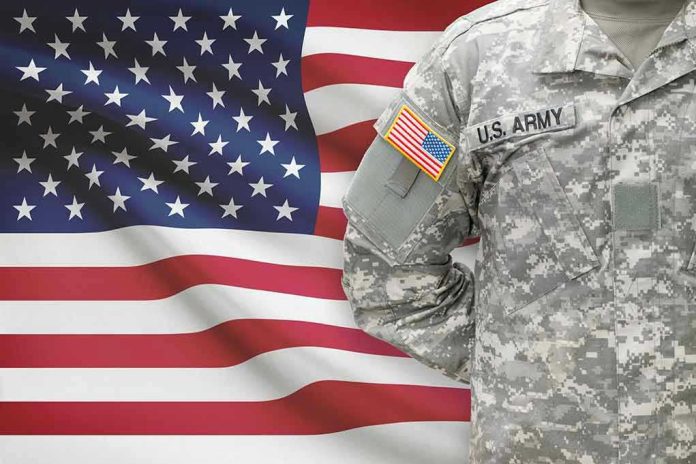
A viral photograph of overweight National Guard troops in Chicago triggered the swift reassignment of soldiers and ignited a fierce national debate over military fitness standards under Defense Secretary Pete Hegseth’s aggressive new leadership.
Story Highlights
- Texas National Guard troops were reassigned from Chicago deployment after viral photo exposed their poor physical condition
- Defense Secretary Pete Hegseth publicly celebrated the move, declaring “Standards are back at the Department of War”
- The incident escalated ongoing tensions between military readiness requirements and concerns about morale and retention
- Hegseth’s hardline approach marks a significant shift in how the military addresses physical fitness violations
The Photograph That Changed Everything
The Texas National Guard deployment to Chicago was supposed to showcase federal immigration enforcement. Instead, an Associated Press photograph captured something far more embarrassing: overweight soldiers whose physical condition became an instant lightning rod for criticism. Within days, the Texas Military Department confirmed that a “small group” of troops had been reassigned for non-compliance with fitness standards.
Hegseth wasted no time capitalizing on the moment. His social media celebration of the reassignment sent shockwaves through military ranks and sparked fierce debate about leadership tactics. The Defense Secretary’s public stance represented a dramatic escalation in what military observers now call the “war on weight.”
Hegseth’s Uncompromising Vision
Since taking office, Hegseth has made physical fitness a cornerstone of his military reform agenda. His approach differs markedly from previous leadership, embracing public accountability measures that many consider harsh. The Chicago incident provided the perfect opportunity to demonstrate his commitment to what he calls restored standards.
The Defense Secretary’s critics argue that public shaming undermines morale and could harm recruitment efforts already facing significant challenges. Military analysts worry that overly punitive measures might drive away qualified personnel who struggle with weight issues but excel in other areas. Yet Hegseth remains unmoved by such concerns, viewing strict enforcement as essential to military effectiveness.
The Broader Battle Over Military Standards
This controversy reflects deeper tensions within America’s armed forces. Rising obesity rates among service members have created operational challenges that military leaders can no longer ignore. Physical readiness directly impacts combat effectiveness, deployment capabilities, and overall force strength. The question becomes how aggressively to address these issues without causing collateral damage.
Expert opinion remains divided on Hegseth’s tactics. While most military analysts support maintaining high fitness standards, many question whether public humiliation serves the military’s long-term interests. The balance between discipline and morale has always been delicate, and Hegseth’s approach tests those boundaries in unprecedented ways.
Immediate Consequences and Future Implications
The reassigned troops now face uncertain futures, with their careers potentially derailed by a single photograph. Their situations highlight the human cost of Hegseth’s policies, raising questions about fairness and proportionality. The Texas Military Department’s swift action suggests that similar incidents may trigger equally rapid responses.
Military recruitment already faces significant challenges in today’s competitive job market. Hegseth’s hardline approach could either attract candidates who value discipline and standards or deter those concerned about punitive leadership styles. The long-term effects on force strength and quality remain to be seen, but early indicators suggest a fundamental shift in military culture is underway.
Sources:
Hegseth orders reassignment of overweight National Guard troops after viral photo
Unfit, undertrained troops no longer tolerated
Troops overweight standards physical Hegseth National Guard



